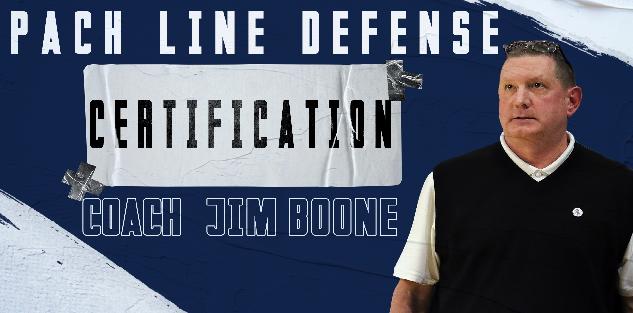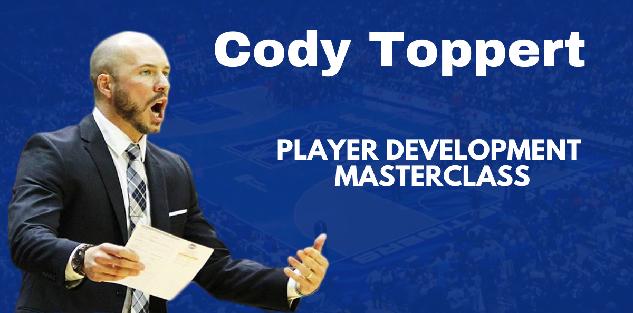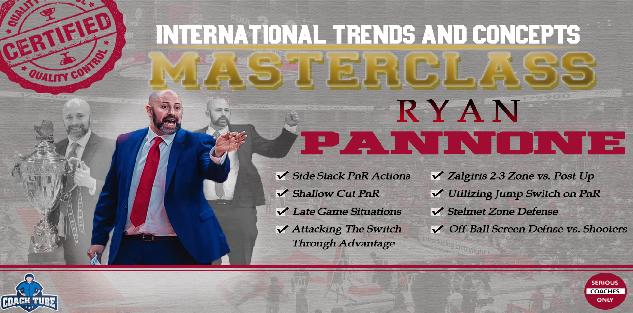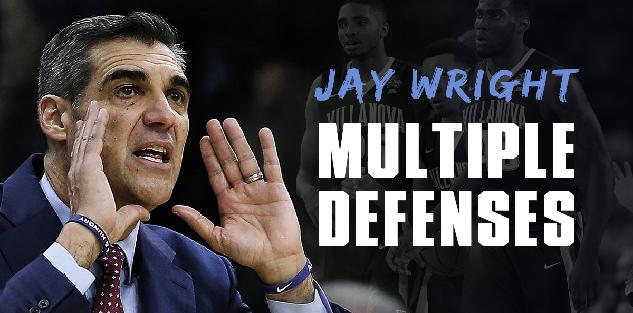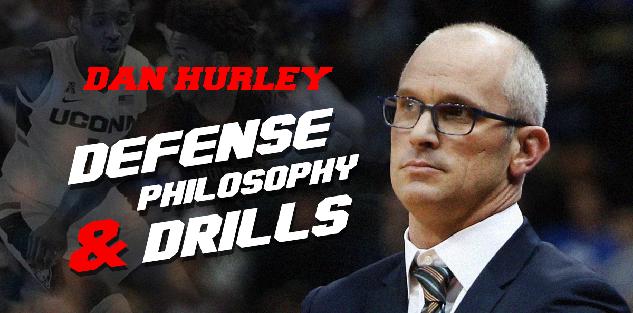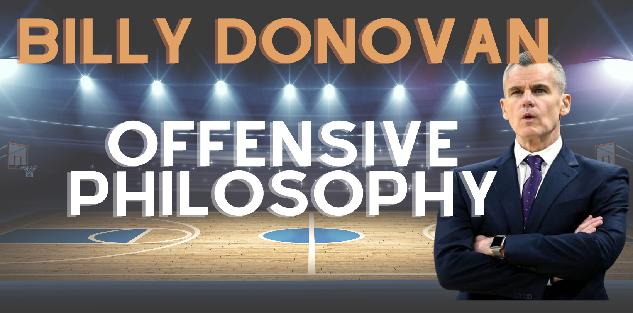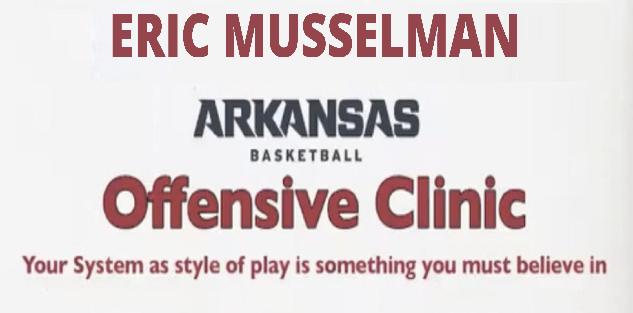Featured courses
- Two Great Game Situational Workouts For the Basketball Offseason by Grant Young
- Two Reads Basketball Players Must Understand Before Executing the Ball-Screen by Grant Young
- Two of LSU Coach Kim Mulkey’s Game-Winning Inbounds Plays by Grant Young
- Three Effective Early-Season Defensive Basketball Drills by Grant Young
- Four Essential Tips For Basketball’s 1-3-1 Zone Defense by Grant Young
- Four Zone Defense Drills to Strengthen Your Team by Grant Young
- How to Beat the Three Most Common Pick and Roll Coverages by Grant Young
- Two Drills to Improve Shooting at the Start of the Basketball Season by Grant Young
- Core Basketball Principles That Dallas Mavericks Coach Sean Sweeney Teaches by Grant Young
- Three Competitive Shooting Drills For Your Basketball Team by Grant Young
- How To Teach The ‘I’ Generation of Basketball Players by Grant Young
- Three Elite Drills to Begin a Basketball Practice With by Grant Young
- How to Build a Championship-Winning Basketball Team Culture by Grant Young
- Two of Texas Women’s Basketball Coach Vic Schaefer’s Tips For Team Culture by Grant Young
- Atlanta Dream WNBA Coach Brandi Poole’s Four Sets for Secondary Offense by Grant Young
- NC State Basketball Coach Brett Nelson’s 4 Crucial Point Guard Qualities by Grant Young
- Kentucky Coach Mark Pope’s Five Guard Rules For Offense by Grant Young
- McNeese State Basketball Coach Will Wade’s 4 Core Pillars by Grant Young
- 4 Tips To Instantly Improve Your Free Throw Shooting by Tyler Linderman
- Assemble a Championship-Caliber Basketball Rotation by Brandon Ogle
- Two of UConn Coach Dan Hurley’s Key Defensive Drills by Grant Young
- Four Post Moves All Basketball Forwards Should Have In Their Bag by Grant Young
- Four of Baylor Coach Nicki Collen’s Midseason Pick and Roll Adjustments by Grant Young
- WNBA Legend Sue Bird’s Two Tips For Attacking on Offense by Grant Young
- Houston Coach Kelvin Sampson’s Three Keys for Building a Basketball Program by Grant Young
- Two of Tom Izzo’s Top Michigan State Defensive Drills by Grant Young
- Four of Olympic Gold Medalist Coach Mechelle Freeman’s Relay Race Strategies by Grant Young
- Three Key Strategies Will Wade Uses to Build a Dominant Team by William Markey
- Five UConn Huskies Men’s Basketball Plays That You Can Use by Grant Young
- Three Tips for Maintaining Team Culture at the End of a Basketball Season by Grant Young
- Three Dribble Drive Motion Drills to Teach Your Basketball Team by Grant Young
- Three Dribbling Drills For Non-Primary Ball Handlers by Grant Young
- Four Advanced Ball Handling Drills For Basketball Guards by Grant Young
- Three Tips to Sharpen Your Post Player’s Footwork in Basketball by Grant Young
- These Three Pick and Roll Drills Are Crucial For Any Ball Screen Offense by Grant Young
- Three Closeout Drills to Improve Basketball Shooting Defense by Grant Young
- Three Tips to Perfect the Packline Defense in Basketball by Grant Young
- Four Keys to Executing the Read and React Offense in Basketball by Grant Young
- Three Tips to Develop Elite Basketball Shooters by Grant Young
- Three Crucial Keys to Executing the 5 Out Offense in Basketball by Grant Young
- These Three Offensive Sets Will Help You Beat Any Zone Defense by Grant Young
- Three Transition Basketball Drills To Play With More Pace by Grant Young
- Three 5 Out Offense Drills Any Basketball Coach Can Use by Grant Young
- Four Vital Techniques for a Motion Offense in Basketball by Grant Young
- Three Baseline Inbounds Plays To Win Your Basketball Team Games by Grant Young
- Four Drills For Sharpening the European Ball Screen Offense by Grant Young
- Three Positioning Tricks For a Basketball Zone Offense by Grant Young
- Three Rules to Perfecting Basketball's Lock Left Defensive System by Grant Young
- UCLA WBB Coach Cori Close’s Two Keys to Winning the Mental Game by Grant Young
- Four of Alabama Coach Nate Oats’ Favorite Basketball Drills by Grant Young
- Three Ways To Turn Transition Offense in Basketball Into Points by Grant Young
- Three Drills to Master Basketball's Pack Line Defense by Grant Young
- Three Transition Defense Drills to Halt Fast Breaks by Grant Young
- Four Offensive Rebounding Drills to Win Second Possessions by Grant Young
- 4 Defensive Technique Drills from Boston Celtics Assistant Coach Brandon Bailey by Marek Hulva
- 5 Drills to Improve Ball Handling by Tyler Linderman
- 13 FUNNY BASKETBALL GIFS by Alex
- BASKETBALL SPEED AND AGILITY: 8 QUESTIONS FOR COACHTUBE EXPERT RICH STONER by Jaycob Ammerman
- Defensive Strategies for Basketball by Ryan Brennan
- 4 Keys To Turning Your Program Into Championship Contender By Dallas Mavericks Coach Sean Sweeney by Marek Hulva
- 5 Components to Creating a Winning Basketball Program by Justin Tran
- Guide to Becoming a Lethal Scorer in Basketball by Justin Tran
- Zone Defense In the NBA Eastern Conference Finals by James Locke
- Mastering Court Mobility: Tips for Effective Movement in Basketball by Justin Tran
- 5 Basketball Shooting Drills: How to Develop a Sharpshooter by James Locke
- 6 Points of Emphasis for a Successful 5 Out Offense by Jaycob Ammerman
- Effective and Efficient Methods to Practice During the Basketball Season by Justin Tran
- Three Great Passing Drills From a Basketball Coaching Legend by Grant Young
- 7 Principles For Perfecting the Princeton Offense in Basketball by Grant Young
- How to Replicate A Modern NBA Offense by Grant Young
- Three Great Two-Ball Dribbling Drills For Basketball Development by Grant Young
- Two Rebounding Drills to Win Your Basketball Team Championships by Grant Young
- How to Improve Your Basketball Team’s Defense With the Shell Drill by Grant Young
- How Baylor Basketball’s Scott Drew Develops Elite Guard Play by Grant Young
- Off-Ball Movement Tips and Strategies: Lessons From the NBA Finals by James Locke
- Player Development: Scott Drew’s Tips for Producing NBA Guards by James Locke
- How to Execute a Spread Offense in Basketball by Grant Young
- Four Quality Quotes From Four Final Four Coaches by Grant Young
- A Guide to the Pack Line Defense by Alex Martinez
- 3 Defensive Build Up Drills to Improve Team Basketball Defense by Grant Young
- Battle of Two Great Coaches: Best Plays from the NBA Finals Contenders by Justin Tran
- 10 Creative Ways Athletic Programs Can Use a Video Board to Raise Money by Coach Williams
- How to Use 3 on 3 to Improve Your Basketball Team by Grant Young
- How to Defend the Pick and Roll by Grant Young
- Mastering Basketball Defense: Techniques, Drills, and Strategies for Success by Justin Tran
- Three Tips From The Coach Who Developed Giannis Antetokoumnpo by Grant Young
- 2023 NBA Draft: Skills and Technique from Top Prospects by Justin Tran
- From College to the Pros: Transitioning the Dribble Drive Offense by Justin Tran
- Positionless Basketball: Redefining Roles on the Court by Justin Tran
- Revolutionize Your Offense: Proven Concepts to Elevate Your Basketball Game by Justin Tran
- 5 Essential Fastbreak Drills Every Basketball Coach Should Know by James Locke
- How to Run a Circle Offense in Basketball by Grant Young
- Game-Changing Strategies: ATO Plays in the EuroLeague and Olympics by Justin Tran
- How to Stand Out at Basketball Tryouts by Grant Young
- How to Improve Your Basketball Team’s Transition Defense by Grant Young
- Indiana Fever GM Lin Dunn’s Two Keys For Women’s Basketball Coaches by Grant Young
- Strength Training Strategies Every Basketball Player Should Have by Grant Young
- A WNBA Basketball Coach’s Four Priorities In Transition Defense by Grant Young
- Three Adjustments to Make When Your Basketball Offense Isn’t Working by Grant Young
- Three Pillars to Applying Defensive Pressure on the Basketball Court by Grant Young
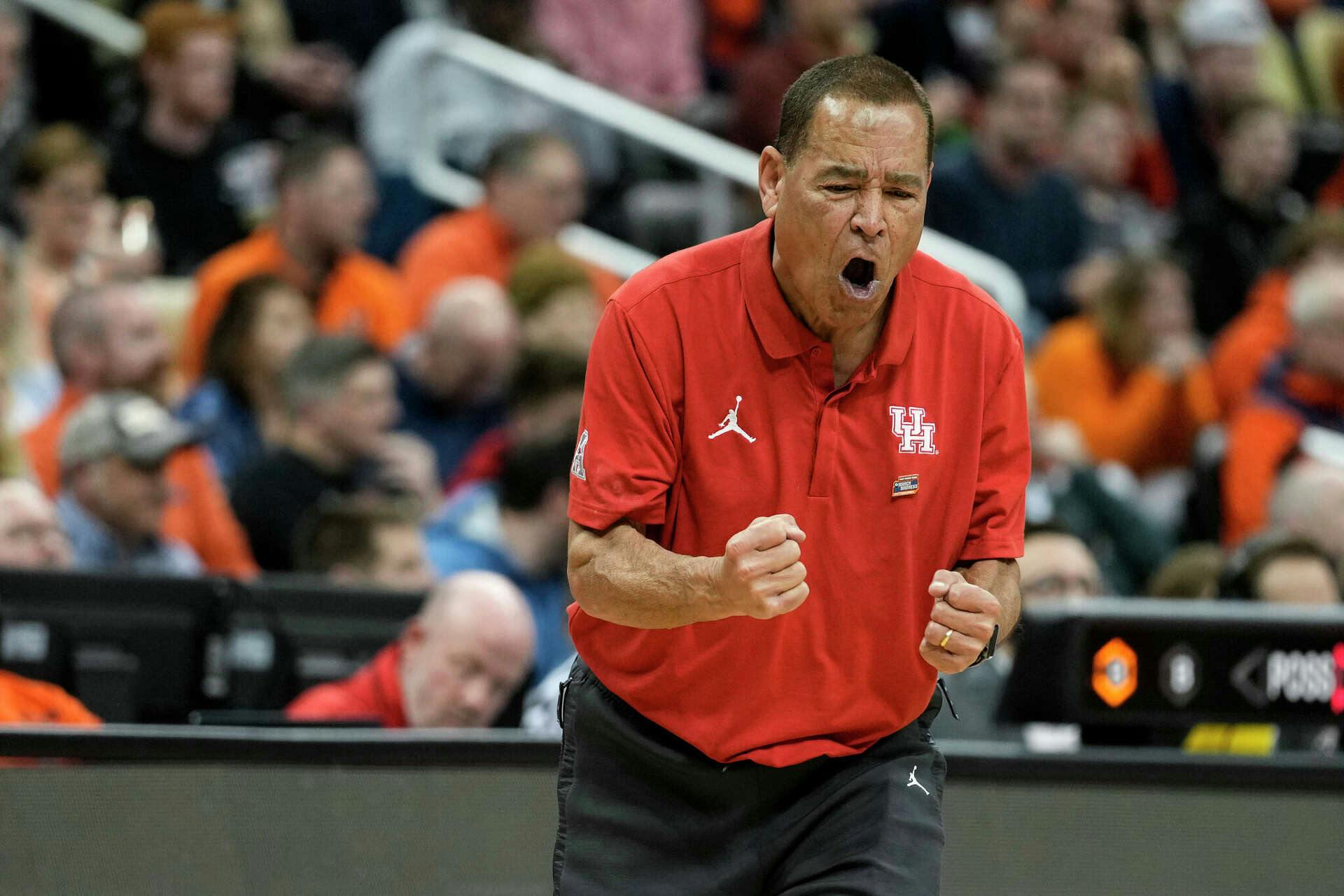
Houston Coach Kelvin Sampson’s Three Keys for Building a Basketball Program
- By Grant Young
In the pressure cooker of March Madness, few programs have established a more distinct identity than the University of Houston men's basketball team under head coach Kelvin Sampson, which is a testament to his elite college basketball development program.
As the Cougars advance to the 2025 NCAA Tournament Final Four, their success reflects the culture of toughness and resilience that Sampson has meticulously cultivated throughout his 11-season tenure.
Since taking over in 2014, Sampson has transformed Houston basketball from an afterthought into a national powerhouse. This year's Final Four run is the culmination of consistent program building, where players don't just develop skills—they develop grit.
The Cougars' defensive intensity has become their calling card. Houston typically ranks among the nation's elite in defensive efficiency, limiting opponents to contested shots and dominating the glass. This season has been no exception, with Houston's swarming defense strangling even the most potent offensive teams in the tournament.
The 2025 Final Four appearance follows Houston's continued success in recent seasons, including their previous Final Four run in 2021. With each tournament appearance, the Cougars have further cemented their reputation as a team nobody wants to face—a direct reflection of the no-nonsense culture Sampson has established.
As Houston prepares for their Final Four matchup, they carry with them the hard-nosed identity that has become synonymous with Cougar basketball under Kelvin Sampson, a coach who has proven that toughness and attention to fundamentals still matter in the modern college game.
While developing such a tough, blue-collar culture isn’t easy, nobody can teach basketball coaches how to do so better than Coach Sampson. And that’s exactly what he did in his ‘Kelvin Sampson - Building and Practicing Toughness’ clinic from the Texas High School Coaches Association's 90th annual Coaching School and Convention. We have pulled some of his most powerful lessons about building a tough culture and players and included them for you below.
1. Standards
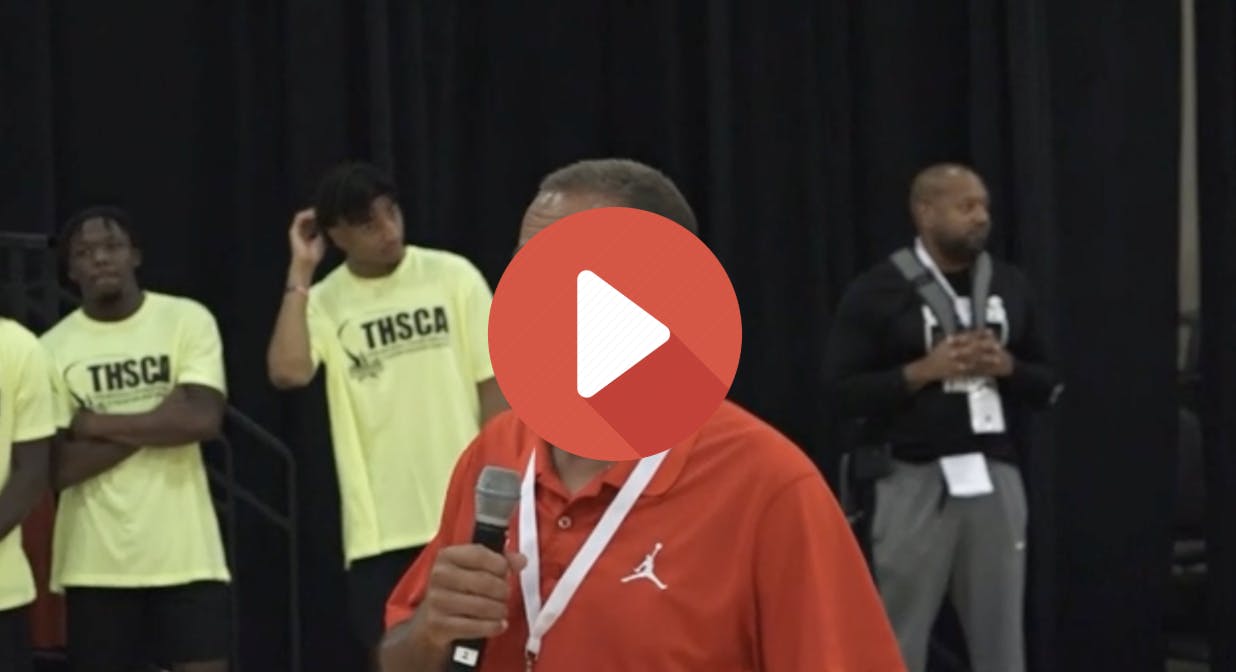
At one point in his clinic, Coach Sampson conveyed his three keys to building a tough basketball program, with the first being standards/
What Coach Sampson means by this is that a head coach has to set and exemplify the highest possible standards for their team to follow. He goes on to discuss that a coach can never have a bad practice because players will see this and it will negatively impact their own thinking and standards.
“There are three people who can never have a bad practice: The head coach, the point guard, and the best player,” Coach Sampson said. He then mentioned how he can tell a lot about a team based on how that team’s best player practices.
Regardless of whether they want to be or not, the best player is going to be a role model for their teammates, and the example they set is going to be adopted by their teammates when it comes to their toughness and intensity.
“The greatest ability your best player can have is dependability,” Coach Sampson says to drive this point home.
Coach Sampson says that while he never wants his players to play with injuries, he needs his players to be able to play with pain. He emphasizes this by saying, “Pain is an opinion. Some people have a high opinion of it, some people have a low opinion of it.”
The head coach, point guard, and best player need to have a low opinion of pain.
2. Expectations
Coach Sampson’s next key to building a tough basketball team is expectations. To convey this, he details a story about his team going 13-19 during his first season as head coach at Houston.
“Sometimes you’ve got to lose first,” he then said. “Don’t be afraid of losing. Losing is part of the game.” This exemplifies Coach Sampson’s larger philosophy of losing some battles along the way in order to ultimately win the war, which is what the big picture vision is for a program, regarding what they ultimately want to achieve.
“If you don’t have standards, you can’t have expectations,” he adds. And while every program wants to win their respective championship, there needs to be tangible and achievable milestones to ultimately reach that point, such as a .500 record, a league championship, or making the playoffs. These will depend on where your team is in its development.
3. Accountability
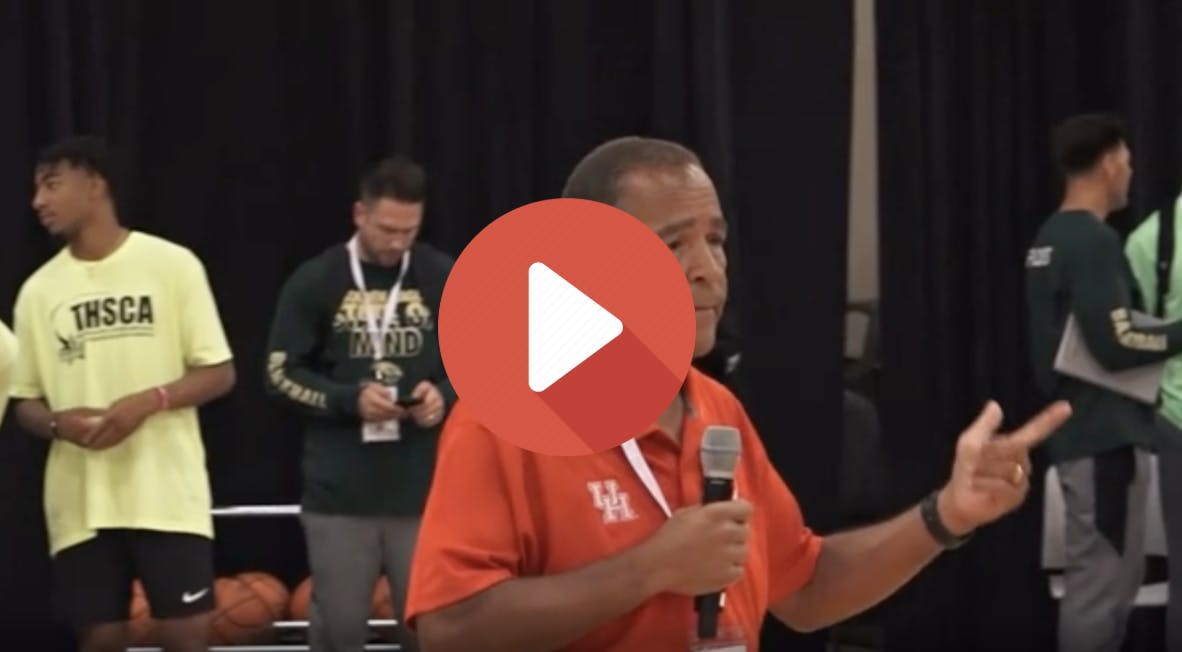
The third and final one of Coach Sampson’s keys for building a basketball program is accountability.
He explains this by discussing that the morning of this clinic, his team was going to run sprints at Houston’s baseball field 6:30 AM. When he got there at 6:15 AM, the entire team was already present, getting stretched and warmed up.
This was an indication that his team has great player leadership, because the team’s leaders scheduled this early stretch.
“A player-led team is so much better than a coach-led team,” he adds. “If you [coaches] spend all your time coaching attitude and effort, then you’re not coaching basketball.”
He then adds that the message has to get through at some point. And in order for that to happen, players need to step as leaders and told their teammates accountable to the standards and expectations that have been set.

